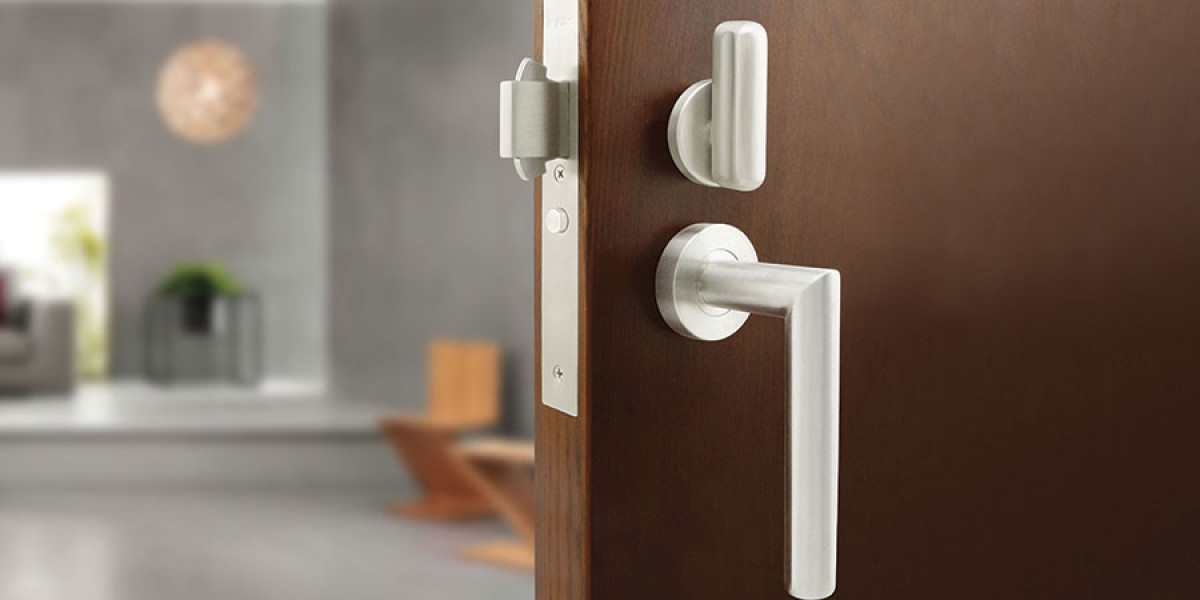Regarding home security, one of the most important aspects is your door lock. A reliable door lock secures your home against intruders and provides peace of mind for you and your family. In this guide, we’ll explore everything you need to know about door locks, including the different types, how they work, and how to choose the best one for your needs.
Understanding the Importance of a Door Lock
A door lock plays a critical role in the security of your home or office. It’s your first line of defense against unwanted entry, keeping intruders out while protecting your belongings. Whether you're securing your front, back, or even internal doors, selecting the right lock ensures that your property is safe.
Beyond security, door locks can also provide privacy, control access, and enhance the aesthetic appeal of your doors. Locks can range from simple, traditional designs to advanced electronic systems, depending on your needs.
Types of Door Locks
Several types of door locks are available, each offering different features and security levels. The most common types include:
Deadbolt Locks
Deadbolts are one of the most popular and reliable door locks. Unlike spring bolt locks, which can be easily forced open, deadbolts are much stronger because they extend a solid metal bolt into the door frame.
Deadbolts come in two main types:
Single Cylinder Deadbolt: This type is operated by a key on the outside and a thumb turn on the inside.
Double Cylinder Deadbolt: Both sides of the lock require a key to operate, providing extra security, especially in areas where windows are near the door.
Knob Locks
Knob locks are simple and often found on interior doors or as an additional security feature on exterior doors. However, they’re generally not as secure as deadbolts because the lock mechanism is part of the door knob, making it easier to break or tamper with.
Lever Handle Locks
Lever handle locks are commonly found on commercial properties and internal doors. They feature a lever instead of a knob and offer a more accessible option for people with limited hand mobility. While these locks can be sturdy, they are often paired with deadbolts for extra security.
Smart Locks
Smart locks are part of the growing trend of home automation. These locks are connected to your home network and can be controlled via smartphone apps, voice assistants, or key fobs. Many smart locks offer features such as keyless entry, remote access, and integration with security systems. Some smart locks also allow you to monitor activity and create temporary access codes for visitors.
Mortise Locks
Mortise locks are typically installed in commercial and older residential buildings. These locks are inserted into a pocket (or "mortise") cut into the door. They are known for their durability and high level of security, often featuring a deadbolt mechanism and latch.
Combination Locks
Combination locks, commonly used on lockers or gates, operate by using a rotating dial or digital keypad to enter a pre-set sequence of numbers. They offer an alternative to traditional keys and are frequently used in locations where key management can be difficult.
How Do Door Locks Work?
The basic functionality of a door lock is to prevent entry by securing the door with a bolt or latch that can only be moved using a key, code, or other unlocking mechanisms. When the lock is engaged, it holds the door in place, making it difficult to open without the correct method of unlocking.
Keyed Locks: In a traditional keyed lock, inserting the key into the lock turns a pin tumbler or similar mechanism that aligns with the lock cylinder, allowing the bolt to retract and the door to open.
Keyless Locks: Keyless locks, such as smart locks, use a code or digital signal to release the bolt. With smart locks, the connection to your mobile device or home network enables you to open the door remotely.
Security Features
Modern door locks offer additional security features beyond simply preventing the door from opening. Many locks include:
Reinforced Strike Plates: These are attached to the door frame to prevent the lock from being forced open.
Anti-Pick Mechanisms: Some locks are designed to resist lock-picking techniques, adding an extra layer of protection.
Tamper-Resistant Designs: These locks are engineered to resist tools or forceful tampering attempts.
Choosing the Right Door Lock
Selecting the best door lock for your needs requires careful consideration of several factors, including security, convenience, and budget. Here are some tips for choosing the right lock:
Determine Your Security Needs
If you live in an area with a high crime rate, you may want to invest in a high-security lock, such as a deadbolt or smart lock. For low-risk areas, a simple knob lock or lever handle may suffice.
Consider the Door Type
The material and construction of your door will affect the type of lock you choose. For example, solid wood doors often work well with most locks, while metal doors may require specialized locks or additional hardware.
Keyless vs. Traditional
Decide if you want to go keyless with a smart lock or stick to traditional mechanical locks. Keyless options offer convenience but may be more expensive. Mechanical locks are often more affordable but may require key management.
Look for Additional Features
Modern locks offer added functionality, such as smart features, remote access, or integration with other security systems. Features like these are especially beneficial for those who want to have more control over access to their home.
Maintaining Your Door Locks
Regular maintenance of your door locks is crucial to ensure they continue to operate smoothly and securely. Here are some tips for keeping your locks in good condition:
Lubricate the Lock: Over time, locks can become stiff or difficult to turn. Using a silicone-based lubricant can keep the mechanism working smoothly.
Check for Wear and Tear: Regularly inspect your locks for any signs of damage, rust, or wear, and replace any components that are no longer functioning properly.
Change the Locks When Necessary: If you’ve lost your keys or moved into a new home, it’s essential to rekey or replace your locks to maintain security.
Conclusion
Door locks are an essential element of home security, providing a reliable means of protecting your property and loved ones. Understanding the different types of locks and how they work can help you choose the best option for your home or office. Whether you opt for traditional deadbolts, modern smart locks, or a combination of both, investing in a high-quality lock is one of the most effective ways to secure your space. Regular maintenance will ensure your locks continue to provide the safety and security you need for years to come.







